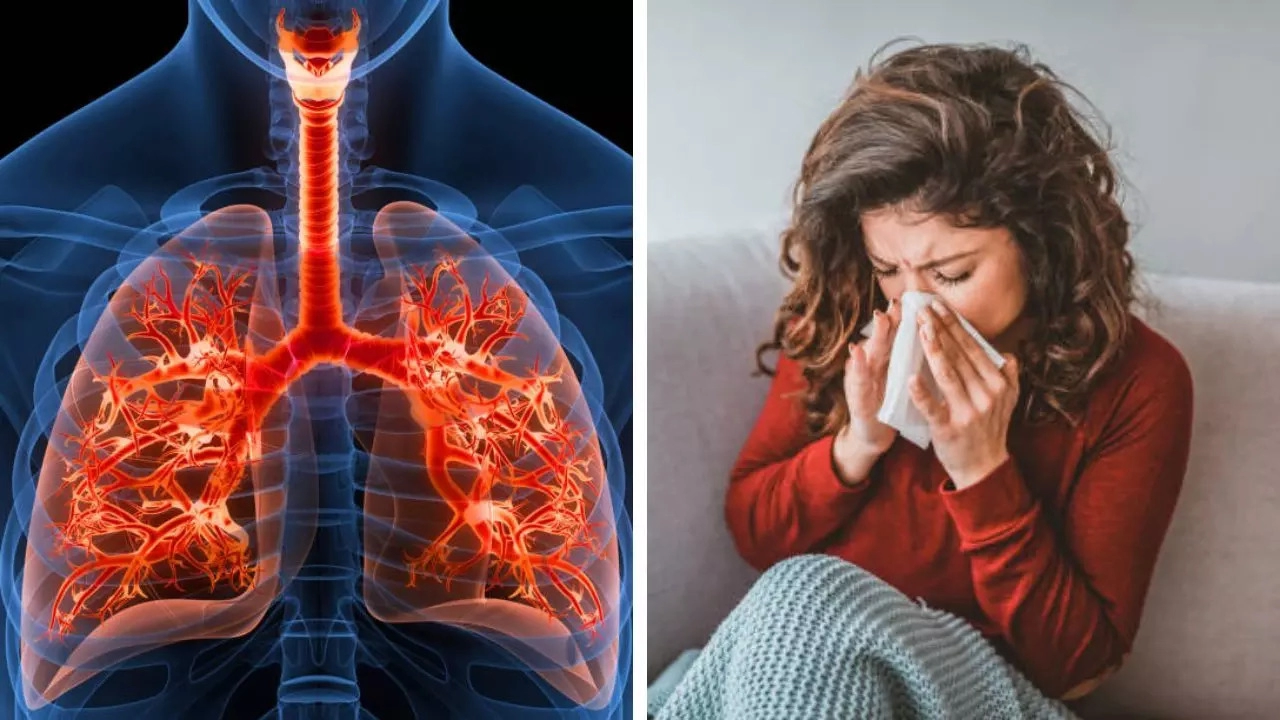News
Walking Pneumonia, Whooping Cough Cases Soaring In The US; Doctors Advise Ways To Keep Yourself Safe

Babies are especially vulnerable to whooping cough and pneumonia infections since they cannot receive vaccines till they are at least two months old
Federal health officials are warning about the tremendous increase in many infections this season – including whooping cough and walking pneumonia - especially among school-going children. According to the Centers for Disease Control and Prevention, there have been about four to five cases of whooping cough – a highly contagious bacterial infection that affects the respiratory system - this year compared to the last.
Also known as pertussis, whooping cough is highly contagious and dangerous as it causes bouts of repeated and violent coughing that keep coming and going and last for weeks or months. Pertussis can cause severe, life-threatening illness, especially in babies.
However, walking pneumonia is a less serious form of lung infection pneumonia, which is often caused by bacteria known as Mycoplasma pneumoniae, and is common in children. Doctors say most kids with this type of pneumonia do not feel sick enough to stay home, and so, does the name "walking" pneumonia.
How do you protect yourself from whooping cough?
According to experts, babies are especially vulnerable to whooping cough infection since they cannot receive the pertussis vaccine till they are at least two months old. Most children catch pertussis from their parents or adult caregivers.
And so, the best way to protect the kids is to get the pertussis vaccine. Healthcare providers recommend that all children receive the diphtheria-tetanus-pertussis, or DTaP shots - a combination vaccine that also protects them against diphtheria and tetanus. It is totally safe and highly effective.
Doctors say children should receive five injections of the DTaP, according to the following recommended schedule:
- First dose: 2 months old
- Second dose: 4 months old
- Third dose: 6 months old
- Fourth dose: Between 15 and 18 months old
- Fifth dose: Between 4 and 6 years old
Ways to prevent walking pneumonia
According to the Cleveland Clinic, walking pneumonia is a mild lung infection that is usually caused by bacteria, viruses, or even mold. It leads to symptoms like sore throat, sneezing, cough, headache, mild chills, and a low-grade fever and is especially common during season change, especially in fall and winter. The main differences between walking pneumonia and regular pneumonia are that walking pneumonia is milder and it usually does not need bed rest or hospitalization.
Since it is a highly contagious condition, doctors advise taking walking pneumonia very seriously. When someone who has the condition coughs, sneezes, talks, sings, or breathes near you, tiny droplets containing the disease enter the air. The illness spreads if you inhale those droplets.
Even though walking pneumonia can be treated with the help of antibiotics, it is better to prevent the condition by:
- Covering your nose and mouth with a tissue when you sneeze or cough
- Regularly washing your hands with soap and clean water for at least 20 seconds
- Wearing a mask around sick people if you have a respiratory condition like asthma
- Getting an annual flu shot
Get Latest News Live on Times Now along with Breaking News and Top Headlines from Health and around the world.
Our Blogs
Our Recent News

Lindt Admits Its Chocolates Have Heavy Metals Like Lead Cadmium; Can Lead To Liver, Kidney Damage
Heavy metals affect brain development, lead to lower IQ in young children, and cause developmental p...

Coming Soon! A Wearable Skin Patch To Track Your Blood Pressure, Heart Health
The patch uses ultrasound, so it could potentially be used to non-invasively track other vital signs...

Air Pollution In Delhi: These 7 Ayurvedic Remedies Can Protect Your Respiratory System
Toxic Air in Delhi? These 7 Ayurvedic Remedies Can Protect Your Health (Image Credits: iStock) Delhi...

